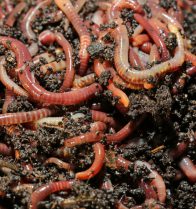Circular economy
In a circular economy people are stimulated to the maximum recycling and re-use of materials, energy, waste, nutrients and water. To achieve a circular economy new technologies are needed, as well as new concepts, business models and a multidisciplinary approach. Within the circular economy, thinking in biological cycles (biobased economy) has an important role.
What we do?
Together with companies we research and test the newest innovations that contribute to closing energy and nutrient cycles. At our test location in Lelystad, the Netherlands, we have tested a pilot setup for closing these cycles in the past years.: it consists of an anaerobic digester (for biogas/methane production), ponds/basins for the production of algae and aquatic biomass and a bioethanol plant connected to a farm and a natural area. The farm and the natural area supply manure, feedstock and crops wastes and natural grass for the digester, while the digestate (i.e. the biogas slurry that remains after biogas production) is returned to the farmland as fertilizer or is being used for the production of new aquatic or terrestrial biomass. The residual heat and CO2 that are produced during the burning of the biogas (conversion into electricity) is being used for the production of microalgae, aquatic plants and the ethanol plant. The technical and economic feasibility, as well as sustainability aspects are taken into account during all activities we set up.
Examples
We are working on concepts for the production of biomass on waste and residual streams, e. g. digestate. This results in the recovery and useful recycling of a major part of the nutrients, which is a challenge with more traditional wastewater treatment technologies. We are also involved in a project focused on the closing of urban food and P cycles in the Netherlands.
Cooperation
By bringing together a multidisciplinary team of technically skilled researchers with people knowledgeable in current agricultural practices on a site with multiple facilities (many test set ups, such as a digester, production of new aquatic and terrestrial biomass and a bioethanol plant) we have created a favourable climate for innovations of use to diverse businesses.
Interested?
If you are interested in developing your ideas for closing cycles together with us you can contact: Rommie van der Weide, tel.: 0320-291631, E-mail: rommie.vanderweide@wur.nl or Wim van Dijk, tel.: 0320-291543, E-mail: wim.vandijk@wur.nl

